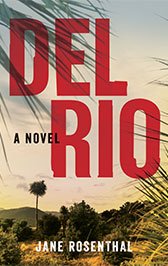Noir
The famous crime writer Ross Macdonald once said that he began writing crime fiction in order to come back “by underground tunnels and devious ways into the light again, dripping with darkness.”
I often feel like that after reading crime fiction, anything from the old noir, classics like Farewell, My Lovely by Chandler to the more modern work of Megan Abbott. I reemerge from those tunnels into the light again with a sense that justice can be achieved. I hope that is true now more than ever.
Noir, like its name implies, presents a much darker view of the world than the view that exists in, say, cozy mysteries like Agatha Christies. In Christie’s books, the world begins as an orderly and safe place. A murder occurs, and it’s up to the detective to restore that order so all is well again.
Noir begins with the idea that society is corrupt and that we are all fallen. The only thing the noir private eye can do in this world is restore justice one crime at a time. “Down these mean streets a man must go,” Raymond Chandler wrote, “who is not himself mean.”
Praise for the writing
Noir fiction thrived in a dark time. It’s no wonder that it was popular during the forties with the Depression and the War when there was a growing acknowledgement that the world was full of corrupt people and institutions, full of failed possibilities, and of uncertain futures. It was an atmosphere perfect for noir fiction. The writer David Corbett says the appeal of noir is “the psychology of desperation or temptation, the little guy trying not to drown, the hero not knowing what he or she is up against.”
Perfect for our own time, right? Aren’t we all just trying not to drown, or burn? Aren’t we just trying to figure out how to survive against the large, unseen forces of oligarchs, fossil fuel industry corruption and late-stage capitalism? No wonder we are seeing the enormous rise of crime and noir fiction, especially books written by women, sometimes called domestic noir, and people of color, noir books written by young people set in some future dystopia? These current writers are using the device of noir fiction and other forms of crime fiction to take on the corruption and injustices we see daily. George Floyd? Breonna Taylor? What are novels for if not to reveal to us the kind of society we live in, to take us through those tunnels of darkness and lead us into the light?
By the way, the noir/crime novel that I’m reading now is totally hitting it out of the park. It’s called Winter Counts by David Heska Wanbli Weiden set on the Lakota Indian reservation in South Dakota. Here’s what the New York Times best-selling author of There, There Tommy Orange says about it: “This book is a meditation on power and violence, and a testament to just how much a crime novel can achieve.”
We might argue on where it falls on the crime/noir scale, but it’s a great read. By the way, I say it is definitely noir.
Jane's second novel!

A once-thriving Central Valley farm town, is now filled with run-down Dollar Stores, llanterias, carnicerias, and shabby mini-marts that sell one-way bus tickets straight to Tijuana on the Flecha Amarilla line. It’s a place . . .
